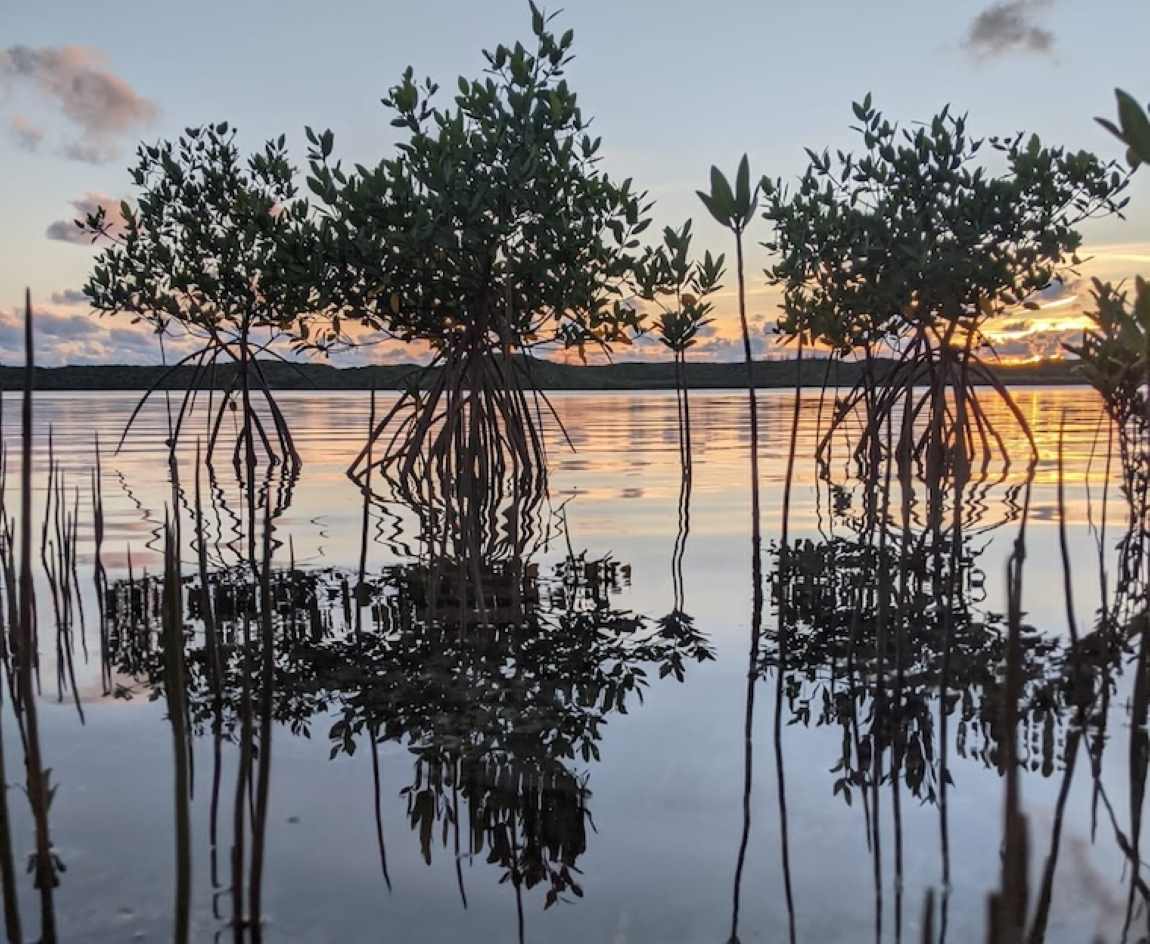Mangroves are proving to be indispensable allies in the fight against climate change, providing $855 billion in global flood protection benefits, according to a new study from the Center for Coastal Climate Resilience at UC Santa Cruz. Led by Pelayo Menendez and Michael W. Beck, the research is featured in the World Bank’s The Changing Wealth of Nations 2024.

The study emphasizes the critical role mangroves play as natural flood defenses, shielding coastal communities from storm surges, erosion, and flooding. Unlike traditional hard infrastructure such as seawalls, mangroves provide dual benefits – robust coastal protection and vital environmental services.
“The results are clear: Mangroves play a critical role in reducing flood risks and should be viewed as valuable natural assets,” said Menendez. “They offer cost-effective protection to coastal communities and support national wealth by preserving lives, livelihoods, and infrastructure.”
This research builds on earlier work by incorporating updated global data from 2020, assessing mangrove coverage in 121 countries spanning 700,000 kilometers of coastlines. The findings reveal a significant increase in the value of mangroves for flood-risk reduction, rising by $130 billion from 1996 to 2010, and by another $502 billion from 2010 to 2020.
The economic valuation accounts for the protective benefits of mangroves over the next century, with countries such as China, Vietnam, Australia, the United States, and India benefiting the most. From 2010 to 2020 alone, mangroves protected 61% more people and safeguarded 109% more capital assets.
Despite mangrove loss due to activities like shrimp farming and coastal development, the study finds the rate of decline has slowed significantly to just 0.66% over the past decade. Encouragingly, the benefits provided by remaining mangroves have grown even faster than the rise in global flood risks.
Countries such as Vietnam, Bangladesh, Cameron and India are reaping the largest benefits from mangroves, while regions like Taiwan, Malaysia and Myanmar face challenges due to declining mangrove coverage. The findings show the urgency of conservation and restoration efforts, especially as the frequency and intensity of storms increase under climate change.
Beck highlighted the broader implications, stating: “Protecting and restoring mangroves isn’t just good for the environment – it’s a smart economic choice. These ecosystems provide invaluable services that help build resilience against the growing threats of climate change.”
The study’s data is also integrated into the Coastal Resilience Explorer, a decision-support tool aimed at guiding global efforts toward sustainable climate adaptation strategies.
More information:
Pelayo Menéndez, Sheila Abad, ‘The CHANGING WEALTH of NATIONS – Building Coastal Resilience with Mangroves: The Contribution of Natural Flood Defenses to the Changing Wealth of Nations’, Technical Report, International Bank for Reconstruction and Development | The World Bank. Read/Download publication (.pdf) | Read/Download the World Bank full report (.pdf)
Article Source:
Press Release/Material by University of California – Santa Cruz
Featured image: Mangroves in Alice Town, Bahamas. Credit: Jessica Kendall-Bar | UC San Diego




